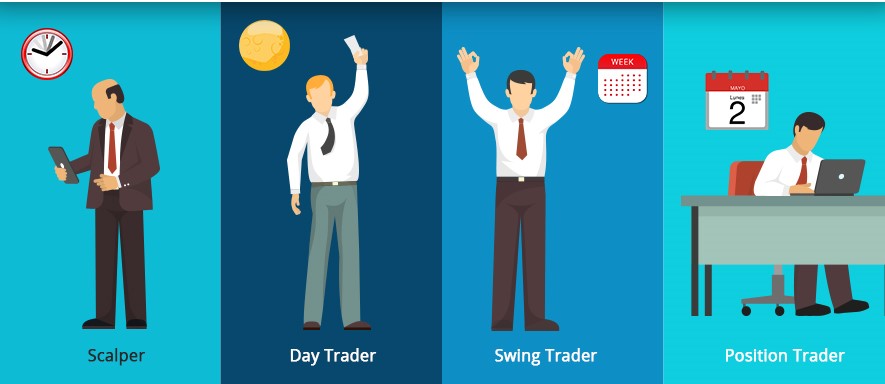Contents
- 1 Introduction
- 2 What is Cryptocurrency Trading?
- 3 How Does Cryptocurrency Trading Work?
- 4 Getting Started: How to Trade Cryptocurrency for Beginners
- 5 Cryptocurrency Trading Platforms
- 6 What Cryptocurrency Trading Platform is the Best?
- 7 Exploring Cryptocurrency Trading Tools
- 8 Strategies for Successful Cryptocurrency Trading
- 9 Risk Management in Cryptocurrency Trading
- 10 Cryptocurrency Regulations
- 11 Exploring Different Trading Styles
- 12 Emerging Trends in Cryptocurrency Trading
- 13 Frequently Asked Questions (FAQs)
- 14 Conclusion
Introduction
Cryptocurrency trading, a dynamic and decentralized market, has captured the attention of investors globally. This guide aims to demystify the complexities surrounding cryptocurrency trading, exploring its fundamentals, strategies, tools, and emerging trends.
What is Cryptocurrency Trading?
Cryptocurrency trading involves the buying and selling of digital assets on decentralized exchanges. Unlike traditional markets, the crypto sphere operates 24/7, creating unique opportunities and challenges for traders. Understanding the basics is crucial for anyone looking to venture into this dynamic market.
In the cryptocurrency realm, prices are determined by supply and demand, often influenced by market sentiment, news, and technological developments. The decentralized nature of cryptocurrencies eliminates intermediaries, allowing for direct peer-to-peer transactions.
How Does Cryptocurrency Trading Work?
At the heart of cryptocurrency trading is blockchain technology. This decentralized ledger ensures secure and transparent transactions by recording every transaction across a network of computers. Blockchain’s transparency and security contribute to the trustworthiness of cryptocurrency trading.
To participate in cryptocurrency trading, individuals need to choose a cryptocurrency exchange, create a digital crypto wallet, and deposit funds. Transactions are verified by network nodes through cryptography, and once confirmed, they are added to the blockchain.
Recommended: Crypto Wallets: Your Secure Gateway to the Digital Currency Revolution
Getting Started: How to Trade Cryptocurrency for Beginners

For beginners, entering the world of cryptocurrency trading requires careful consideration and education. Start by researching fundamental concepts such as blockchain, wallets, and private keys. Choose a reputable exchange like Coinbase or Binance, create a secure wallet, and initiate your journey with small investments.
Understanding market dynamics and common trading terminology, such as market orders, limit orders, and stop-loss orders, is essential. Additionally, stay informed about market trends and major developments within the cryptocurrency space.
Cryptocurrency Trading Platforms
Selecting a suitable trading platform is a critical decision for traders. Coinbase, Binance, Kraken, and others offer diverse features, including a variety of supported cryptocurrencies, user-friendly interfaces, and different trading pairs. Consider factors such as security, fees, and available trading tools when choosing a platform.
Recommended: Demystifying Your Search for the Best Crypto Trading Platforms
What Cryptocurrency Trading Platform is the Best?
While numerous platforms cater to different needs, Binance stands out for its extensive range of supported cryptocurrencies and user-friendly interface. Offering advanced trading features alongside educational resources, Binance is a preferred choice for both beginners and experienced traders.
Exploring Cryptocurrency Trading Tools
The rise of automation in cryptocurrency trading has introduced tools like trading bots, often driven by artificial intelligence (AI). These tools assist traders by executing predefined strategies, analyzing market trends, and making quick decisions. Incorporating these tools into your trading strategy can enhance efficiency and potentially improve results.
Trading bots operate based on pre-set parameters, executing trades on behalf of the user. They can analyze vast amounts of data and execute trades at speeds impossible for humans, providing a competitive edge in the fast-paced cryptocurrency market. However, it’s crucial to approach their usage with caution and conduct thorough research.
Recommended: Alpha.bot’s Comprehensive Charting and Market Dynamics
Strategies for Successful Cryptocurrency Trading

Navigating the ever-changing crypto landscape requires a solid strategy. Traders often adopt various approaches based on their risk tolerance, time commitment, and market conditions.
- Day Trading: This strategy involves executing multiple trades within a single day, taking advantage of short-term price movements. Day traders closely monitor the market and aim to capitalize on intraday volatility.
- Swing Trading: Traders employing swing trading look to capture gains over a few days to weeks, capitalizing on short to medium-term price fluctuations. This strategy requires a more patient approach compared to day trading.
- Position Trading: Position traders take a long-term perspective, holding onto assets for months or even years. This approach requires a deep understanding of fundamental factors influencing a cryptocurrency’s value.
Understanding technical analysis, which involves studying price charts and historical data, and fundamental analysis, which assesses underlying factors like technology and partnerships, is crucial for crafting successful strategies.
Risk Management in Cryptocurrency Trading
Due to the inherent volatility of cryptocurrency markets, effective risk management is essential. Traders can employ several strategies to mitigate risks:
- Setting Stop-Loss Orders: Placing stop-loss orders helps limit potential losses by automatically triggering a sale when an asset’s price reaches a predetermined level.
- Diversification: Spreading investments across different cryptocurrencies can help reduce risk exposure. Diversification is a fundamental principle of risk management in any investment portfolio.
- Staying Informed: Continuously monitoring market trends, news, and regulatory developments allows traders to make informed decisions and adjust their strategies accordingly.
Cryptocurrency Regulations
Navigating the regulatory landscape is crucial for sustainable cryptocurrency trading. Regulations vary globally, impacting aspects such as trading platform registration, tax obligations, and user protections. Staying informed about the regulatory environment in your jurisdiction is essential to ensure compliance and avoid legal issues.
Exploring Different Trading Styles

Tailoring your trading style to align with your risk tolerance and goals is crucial for success:
- Day Trading: Involves executing multiple trades within a single day to take advantage of short-term price fluctuations.
- Swing Trading: Captures gains over a few days to weeks by capitalizing on short to medium-term price movements.
- Position Trading: Involves holding assets for an extended period, often months or years, based on a long-term perspective.
- Margin Trading: Allows traders to borrow funds to increase their position size, amplifying both potential gains and losses.
Emerging Trends in Cryptocurrency Trading
As the cryptocurrency market evolves, new trends emerge:
- DeFi Trading: Decentralized Finance (DeFi) platforms offer blockchain-based financial services, enabling users to lend, borrow, and trade without traditional intermediaries.
- NFT Trading: Non-fungible tokens (NFTs) represent unique digital assets, opening new avenues for creators, collectors, and investors.
- Crypto Options and Futures Trading: These derivative markets provide additional tools for sophisticated traders to hedge risk or speculate on future price movements.
- Copy and Social Trading: Platforms enabling users to replicate the trades of successful investors or engage in social trading communities are gaining popularity.
Frequently Asked Questions (FAQs)

- Can crypto trading make you rich?
Cryptocurrency trading holds the potential for significant gains, but success is not guaranteed. Profits depend on factors such as market knowledge, strategy, and risk management. - Can crypto trading be a full-time job?
While some individuals make a living from crypto trading, it requires dedication, continuous learning, and a realistic understanding of the associated risks. - Does cryptocurrency trade 24/7?
Yes, the cryptocurrency market operates 24/7, providing continuous opportunities for traders worldwide.
Conclusion
In conclusion, cryptocurrency trading offers a dynamic and potentially lucrative avenue for investors. Success in this market requires a combination of education, strategy, risk management, and adaptability. Whether you’re a beginner or an experienced trader, continuous learning and staying informed about market trends are keys to navigating the ever-changing world of cryptocurrency trading. Embark on your trading journey with a solid foundation, and may your endeavors be met with success in this exciting financial frontier.













